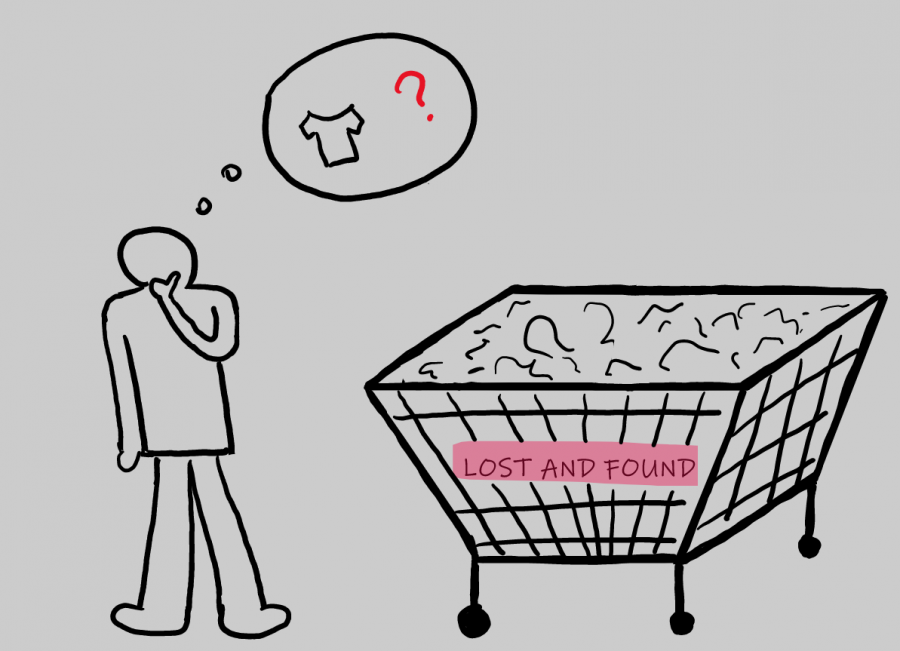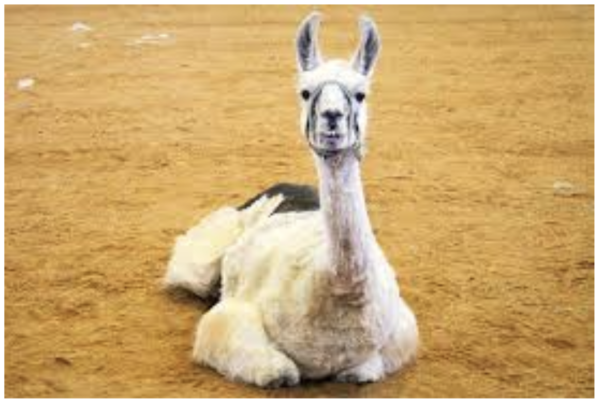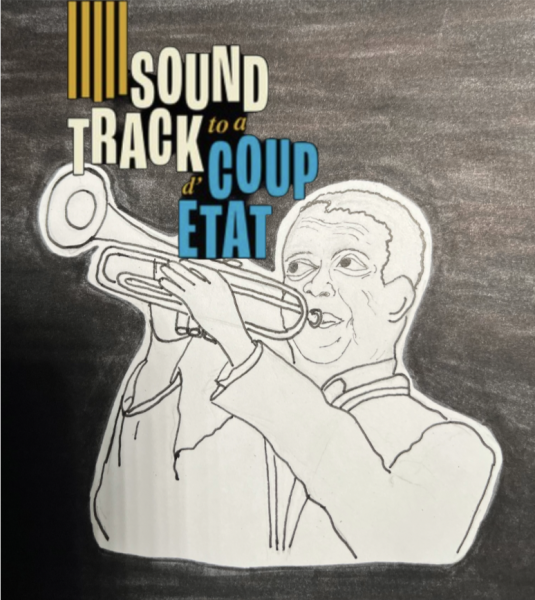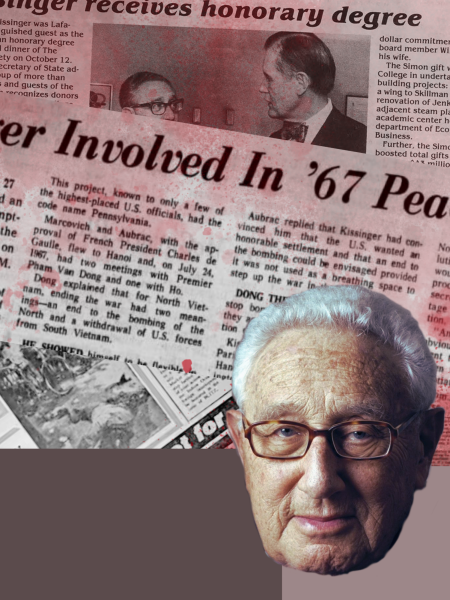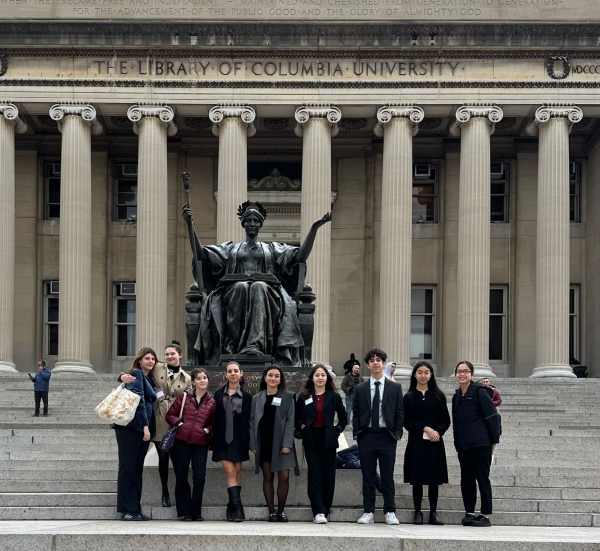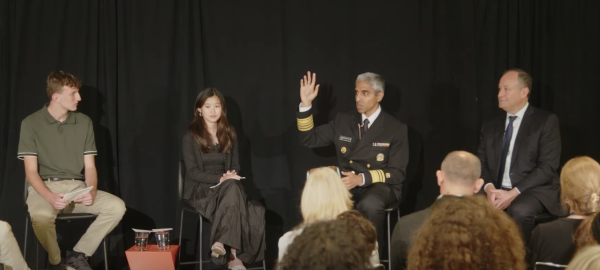When We Lose Our Things, Where Do They Go?
Photo by Sijia Zhong
“Do you see the calligraphy brushes I just put on the table?” a UNIS JUNOC Club student asks helplessly to other club members in the cafeteria after club activities finished. “Where did the ink go?” “I can’t find the calligraphy papers as well…” Situations like these happen throughout school everywhere between students. In fact, it is a commonly asked question: Where can I find the lost items at school?
According to our student supervisor, Ms. Michelle, “lost items are turned into the principal’s office,” although it also depends on the type of lost object. For example, clothes such as hoodies, P.E. t-shirts, and pants are normally kept in the basket near Staircase B in the UNIS lobby, while items like pencil cases, calculators, and notebooks are kept in the classrooms where students left them or teachers’ offices. According to Tut House English teacher, Mr. Leyva, “If there are more important items like phones or other electronics, I’ll keep them in my desk until they are retrieved.”
Some items remain unclaimed for days. Others can be found in the lost and found areas around the Tut House and the principal’s office as well. However, more valuable items such as Macbooks, Airpods, and so o,n would have been collected by teachers and kept in their office until the students were aware of their missing belongings.
However, not all the lost items at school are identified and get back to their owners in the end. Where do these unidentified items go after they have been kept for a long time? Are they thrown away? Would it still be possible to find them back? Our student supervisor, Ms. Michelle, replied, “We do not throw away clothing—this year we are donating the items to the Salvation Army. In normal years, we use the recycle bin in the lobby to collect any unclaimed lost and found and partner with the Department of Sanitation that picks up these items and donates them to Housing Works.”
Normally, any unidentified or unclaimed items at UNIS would be eventually donated to the organizations outside school such as Housing Works or Salvation Army located on 23rd street between 2nd and 3rd avenues by using the school trucks to deliver the bags of donations there.
Meanwhile, many students may also wonder when the unclaimed lost items will be donated. In general, UNIS will donate the leftover lost and found from last year in the beginning of the new school year. However, this school year—due to COVID-19 and the new cleaning protocols and the prohibition of the use of student lockers—there have been far fewer objects in the lost and found than in the past, so secondary action has not yet been decided. In normal times, for the textile recycle bin or the basket in the lobby, UNIS would place a call to have the bin emptied by Housing Works when it is 75% full.
When interviewing some of the Tut House students about lost items at school, most of them seem to know that they can find those objects either in the Tut House office or in the lobby, although some are still not sure exactly where the lost and found is. Furthermore, two-thirds of students did not know about the donations of unclaimed and unidentified items from school to outside organizations, though they all did, however, agree they should be donated. As one T2 explained, “I think donating lost items that are not being claimed to organizations is a great idea. As a school, we can’t keep storing them forever and if others can make use of the supplies, there’s no reason not to donate. Besides, if they’re not being picked up by anybody (of course there should be there for a little while to give the owner a chance to pick it up), they’re probably not that important to the person anyways, though it depends on the item.”
Mr. Leyva agrees, “I think UNIS should keep the items until the end of the year and then donate them fully. There’s no need to toss items away when there are people that don’t have these items in the city. I find it wasteful.”
Nevertheless, the length of time the lost items are kept is also a problem for the school and students who want to find them back. While two of the Tut House students agreed that one semester seemed to be a proper length, explaining that “the longer the time width, the larger the possibility students would obtain for getting their things back,” two others disagreed by noting that “two weeks would be enough for students to realize they’ve lost something and to try to find them back.”
Mr. Leyva provided similar opinions to the first two when commenting, “A year gives students a chance to find them. If you have a set amount of time, let’s say every three months, what happens to the person who lost an item on the day right before you donate? It doesn’t give them a chance to properly search for it.”
In addition, students also have some thoughts on how to make the process of retrieving lost items easier for themselves. One of the T2 students suggested, “I think it would be better if teachers could post on Schoology or write an email reporting the items, so students would notice.” The others advised using a “web page with the posts of the lost items pictures on it” or having “signs” to show the places where the lost and found areas are kept on each floor at school. Mr. Leyva also agreed with the idea of making a “website” connecting a management system on each floor as well, so students could easily check the information given.
Losing items at school is inevitable and understandable, and based on the continuous situation of losing items at UNIS, all students and teachers should know about this lost and found information in order to prevent confusion and understand what to do in situations such as when students lose their ID cards. However, it is our responsibility to maintain our own belongings— not the school’s. It’s better and less effort for students, teachers, and the whole school if we always check and gather our belongings in our bags before leaving the classrooms as well as to keep track of our own items at the end of the day.

Hi! I'm Sijia Zhong from the class of 2023. I'm the Academics Section Editor for UNISVerse and I like to write articles related to school events such as...



